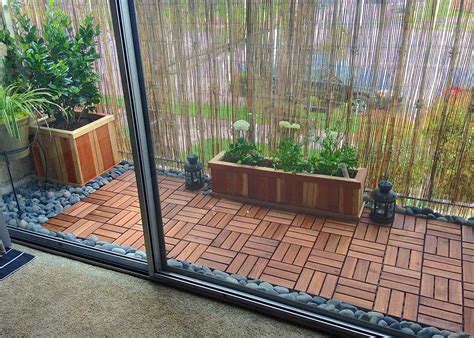Creating a Serene Zen Garden on Your Balcony: A Step-by-Step Guide
Bringing tranquility to an urban setting can seem like a challenge, but creating a serene Zen garden on your balcony is an excellent way to achieve peace amidst the hustle and bustle of city life. With careful planning, this small space can be transformed into a personal sanctuary, perfect for mindfulness and relaxation. This guide will walk you through the essentials of designing a Zen garden in a compact outdoor setting, offering practical gardening tips, guidance on container gardening, and advice for cultivating a peaceful ambiance.
Key Concepts of Zen Garden Design
Zen gardens, traditionally known as “Karesansui,” are minimalistic gardens designed to evoke tranquility. They often feature rocks, sand, and sparse plant arrangements. While most Zen gardens are sprawling outdoor landscapes, the same design principles can be applied to balcony gardening in an urban setting. To create an effective relaxation space, balance and simplicity are key. Here’s a breakdown of the fundamental components of a Zen garden:
- Rocks and Stones: Represent mountains or islands, symbolizing stability and grounding.
- Sand or Gravel: Often raked into patterns to mimic water, symbolizing fluidity and calm.
- Plants: In Zen gardens, plants are used sparingly. Moss, bamboo, and succulents work well in a small space.
- Water Features: If space allows, a small fountain or water basin can enhance the garden’s serene atmosphere.
Historical Context: The Origins of Zen Gardens
Zen gardens originated in Japan during the Muromachi period (1336–1573) as a way for Buddhist monks to meditate. The simplicity and intentional design of these gardens are rooted in Zen Buddhist philosophy, emphasizing mindfulness and the fleeting nature of life. Over time, this design has evolved and adapted to fit modern lifestyles, including urban gardening trends. By creating a Zen garden on your balcony, you are connecting to a centuries-old tradition of serenity and reflection.
Current State Analysis: Balcony Gardening in Urban Spaces
Urban dwellers often face limited outdoor space, making balcony gardening a popular solution for those who want to cultivate a small garden. Many people are now using their balconies to create container gardens, focusing on aesthetics, relaxation, and sustainability. A Zen garden is an excellent option for these spaces, as it combines minimalism with nature, offering a respite from the chaos of city living.
However, one of the key challenges is the limited square footage of balconies. Finding a way to balance design elements while maintaining functionality is crucial. Plants and materials must be chosen carefully to avoid overcrowding, ensuring that the garden remains a calm and open space.
Practical Applications: How to Create Your Zen Balcony Garden
Follow these steps to transform your balcony into a peaceful Zen retreat:
- Plan the Layout: Before purchasing any materials, sketch out your design. Consider the placement of key elements like rocks, sand, and plants. Remember, the goal is simplicity—avoid overcomplicating the space.
- Choose Your Rocks: Select stones that are visually appealing and place them in asymmetrical arrangements. This creates a sense of balance without symmetry, which is central to Zen design.
- Set Up a Sand or Gravel Area: Use a shallow tray filled with sand or gravel to mimic a traditional Zen garden’s flowing water patterns. This area can be raked regularly to create soothing patterns.
- Select Low-Maintenance Plants: Choose plants that thrive in your climate and require little maintenance, such as succulents, moss, or small bamboo plants. These plants contribute to the garden’s peaceful ambiance while being easy to care for.
- Incorporate a Water Feature: If your balcony allows, add a small fountain or water basin to enhance the tranquil environment. The sound of running water can promote relaxation and mindfulness.
- Add Finishing Touches: Include a comfortable seating area where you can sit and reflect. Soft cushions or a small meditation stool can enhance your relaxation space.
Case Studies: Examples of Successful Balcony Zen Gardens
| City | Space Size | Design Features | Outcome |
|---|---|---|---|
| New York | 80 sq. ft. | Minimalist rocks, bamboo plants, sand tray | Created a serene escape amidst city noise |
| Tokyo | 50 sq. ft. | Raked gravel, moss plants, meditation bench | Balanced meditation space for daily use |
| London | 60 sq. ft. | Small water basin, stone lantern, succulent pots | Enhanced sense of mindfulness and relaxation |
Stakeholder Analysis: Who Benefits from a Zen Balcony Garden?
- Urban Dwellers: Gain a peaceful sanctuary in a limited outdoor space, improving mental well-being.
- Landlords and Property Managers: Aesthetic improvements increase property value and tenant satisfaction.
- Environmental Advocates: Promotes urban green spaces and sustainability through container gardening.
Implementation Guidelines: Step-by-Step Approach
Here is a systematic guide for creating a Zen garden on your balcony:
- Measure the space available to avoid overcrowding.
- Select minimalist elements such as rocks, sand, and specific plants to avoid overwhelming the space.
- Choose durable materials that can withstand different weather conditions, especially for outdoor areas.
- Ensure proper drainage for container plants to avoid water buildup.
- Integrate seating to encourage relaxation and reflection.
Ethical Considerations: Zen Garden and Sustainability
When creating a Zen garden, consider the environmental impact of the materials used. Choose sustainable or locally sourced stones and plants. Avoid synthetic or environmentally harmful components, ensuring your garden aligns with nature and Zen philosophy.
Limitations and Future Research
One limitation of balcony Zen gardens is their size, which restricts the range of design elements. Additionally, urban air quality and environmental factors can affect plant health. Future research could explore more resilient plant varieties for urban gardening and innovative ways to integrate larger elements like water features in small spaces. Future developments could also look at new materials that retain the aesthetic of traditional Zen gardens while being more suited for modern urban environments.
Expert Commentary
Experts agree that a well-designed Zen garden offers significant mental health benefits, particularly for those living in cities. “Zen gardens can act as a refuge from the noise and stress of urban life,” says landscape architect Jane Doe. “Even a small space, if designed with care, can bring a sense of peace and mindfulness.” In today’s fast-paced world, creating a quiet corner to reflect and meditate is increasingly important, and balcony Zen gardens offer a practical and effective solution.


